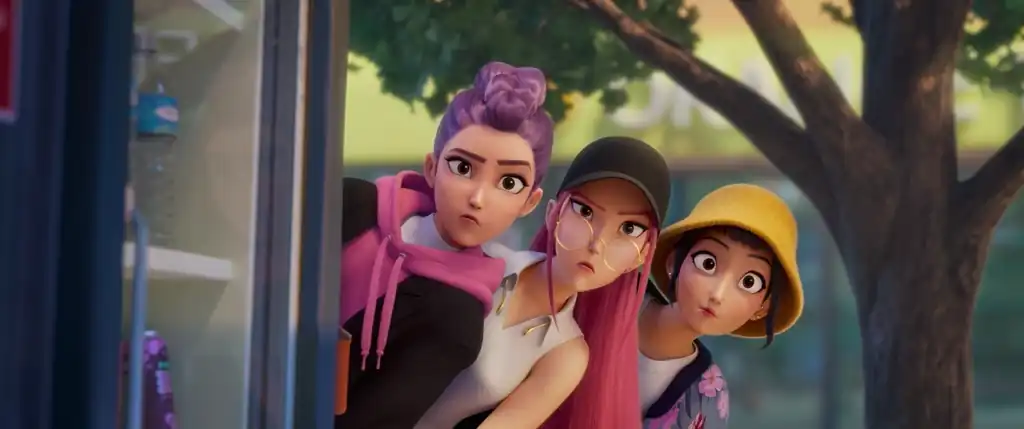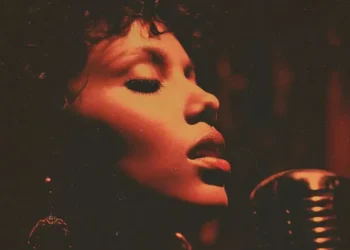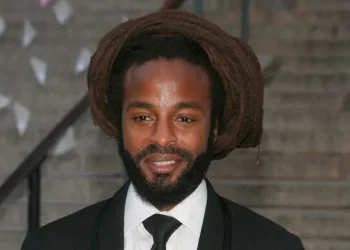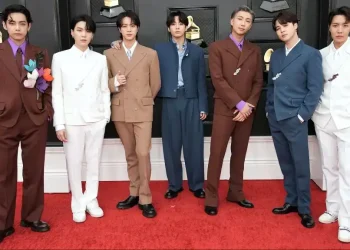How ‘KPop Demon Hunters’ Became 2025’s Surprise Global Sensation
Written: July 29, 2025 | 21:00 EDT
Summary:
In a summer dominated by sequels and reboots, an animated original has emerged as a fan-favorite and streaming phenomenon. KPop Demon Hunters, an action-fantasy musical about a fictional K-pop girl group, has topped Netflix charts, earned Billboard honors, and captured the imagination of fans worldwide.
A Unique Blend of K-pop, Fantasy, and Fandom
KPop Demon Hunters, co-produced by Sony Pictures and distributed globally by Netflix, tells the story of a fictional K-pop trio, HUNTR/X, who lead double lives as demon fighters. The film’s immersive blend of Korean pop culture and animated musical storytelling quickly resonated with audiences, becoming a viral hit across platforms.
The world-building is intentionally rich in K-pop references — light sticks, fan chants, idol merchandise — and draws inspiration from real-life groups like BLACKPINK and 2NE1. This attention to cultural detail helped the film not only connect with K-pop enthusiasts but also stand out among animated releases.
A Chart-Topping Soundtrack Driven by Authentic K-pop Production
One of the key drivers behind the film’s success is its original soundtrack, produced in collaboration with The Black Label, a K-pop company co-founded by renowned producer Teddy Park. Park’s credits include major hits with BLACKPINK and 2NE1, and his involvement added credibility to the musical component of the film.
Eight songs from the KPop Demon Hunters soundtrack landed on the Billboard Hot 100, and the album debuted at No. 1 on the Billboard Soundtracks chart and No. 2 on the all-genre Billboard 200. According to K-pop journalist Jeff Benjamin, the filmmakers “really did their homework,” drawing from both historical K-pop icons like H.O.T. and modern sounds that resonate with today’s fans.
Benjamin compared the film’s musical success to Disney’s Encanto, which topped the Billboard 200 and produced the chart-topping hit “We Don’t Talk About Bruno.” Similarly, KPop Demon Hunters treats its soundtrack as an integral narrative device — not just background music.
Original Storytelling Captivates a Global Audience
Unlike many animated films that adapt existing intellectual property, KPop Demon Hunters offers an entirely original story. Co-director Maggie Kang emphasized the film’s unique cultural blend: “It’s not completely Korean, it’s not completely Western — it’s a flavor of both.”
This cross-cultural narrative appealed to global audiences hungry for something fresh. San Francisco-based cosplayer Nanci Alcántar, also known as Naanny Lee, highlighted how the film’s plot — a transformation from K-pop idols to warriors — gave the movie emotional and narrative depth beyond music.
The film’s refusal to overly explain Korean cultural references also worked in its favor. By immersing viewers in Korea without over-explaining traditional elements, the filmmakers trusted their audience’s curiosity and intelligence — a technique Kang believes helped break cultural barriers.
Animation Inspires Creative Fan Response
Another reason for the film’s runaway success is its vibrant and stylized animation. Freelance illustrator and long-time K-pop fan Zabrinah Santiago, who goes by ItmeZ online, was so inspired by the film’s visuals that she created and sold fan cards featuring HUNTR/X and their fictional rivals, Saja Boys, at the Los Angeles Anime Expo.
On Instagram, #KPopDemonHunters features thousands of fan artworks, cosplay photos, and dance covers. Emily Sim, a popular Japan-based YouTuber known as Emirichu, praised the film’s character designs and engaging plot in a video that garnered nearly half a million views in under two weeks.
Music journalist Tamar Herman compared the film’s animation and universal appeal to Spider-Man: Into the Spider-Verse, calling it “campy, engaging, and universal.”
A Love Letter to K-pop Fans
Some fans were initially cautious about the title KPop Demon Hunters, fearing it might be a gimmick. Santiago noted that large entertainment companies often use K-pop imagery to attract clicks. But her concerns faded after watching the film: “It felt like a love letter to K-pop fans.”
That fan-centric authenticity is evident throughout the movie. Jeff Benjamin explained that Easter eggs and in-jokes tailored to longtime K-pop listeners helped validate the film’s intentions. Rather than mocking the genre or its fanbase, the movie celebrates them.
Tamar Herman echoed the sentiment, noting that the film’s creators clearly understood “what makes K-pop tick” and used that knowledge to create a compelling story that resonates with both fans and newcomers.
Kang said that celebrating fandom was essential to the story itself: “Fandom plays a huge part in the world being saved at the end of the movie. So we were really confident that we were doing that justice.”
Cultural Relevance Meets Streaming Success
KPop Demon Hunters has proven that original, culturally rich storytelling can succeed globally — especially when creators take the time to respect and reflect the communities they’re representing. By combining an inventive soundtrack, stunning animation, and heartfelt storytelling, the film has not only topped streaming charts but also carved out a new path for animated musical storytelling.
As the summer winds down, KPop Demon Hunters stands as a reminder that original content, when crafted with sincerity and creativity, can still break through a crowded media landscape — and unite fans across borders.
This article was rewritten by JournosNews.com based on verified reporting from trusted sources. The content has been independently reviewed, fact-checked, and edited for accuracy, neutrality, tone, and global readability in accordance with Google News and AdSense standards.
All opinions, quotes, or statements from contributors, experts, or sourced organizations do not necessarily reflect the views of JournosNews.com. JournosNews.com maintains full editorial independence from any external funders, sponsors, or organizations.
Stay informed with JournosNews.com — your trusted source for verified global reporting and in-depth analysis. Follow us on Google News, BlueSky, and X for real-time updates.












